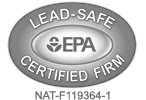Air Purifiers vs. Dehumidifiers: What’s the Difference?

Fresh, clean air is important for your comfort at home. When it comes to air quality, air purifiers and dehumidifiers are popular choices, and homeowners either get one or both. Both provide protection against allergens, but they work on the air in different ways and reduce different kinds of pollutants.
Factors in Indoor Air Quality
Before learning about the differences between air purifiers and dehumidifiers, it’s necessary to know about what affects indoor air quality levels:
- Dust and dust mites
- Bacteria and viruses
- Pollen
- Pet dander
- VOCs from fabrics, paint, and other chemicals
- Radon gas from the soil, which can get trapped in homes
- Smoke, such as from tobacco or the kitchen
- Mold and mildew
- Humidity
- Ventilation
- Temperature
How Air Purifiers and Dehumidifiers Work
Air purifiers work to pull air through an air filter and circulate the filtered air back out. They can filter any number of harmful pollutants or allergens in the air, including dust, dust mites, bacteria, viruses, pollen, and pet dander. Some can even filter smoke, VOCs, and mold spores. HVAC units have air filters, but they are there to help keep the system running smoothly and clean from larger dust and dirt particles.
Unlike HVAC air filters alone, air purifiers do more because they filter smaller particles. They are especially popular for people living in homes with multiple people or who have children and pets. While not all HVAC air filters are the same, an air purifier improves air quality even more.
Dehumidifiers work to remove a certain amount of moisture from the air. Excessive moisture means poor ventilation, increasing allergens for everyone in the environment. That includes dust, dust mites, viruses, bacteria, insect growth, VOCs, mold, and mildew, all of which thrive in humid environments. The musty odor and stuffy feeling from the air are unpleasant and lead to headaches, fatigue, and insomnia while the humidity taxes the AC, rusts metal, warps wood, and dampens paint and wallpaper.
Where you live as well as the construction of your house affects the moisture levels in your home. It’s common for people living in apartments to get dehumidifiers to avoid ventilation circulating and accumulating allergens between the walls, but they’re necessary for anyone with humidity levels over 50%.
Types of Air Purifiers
When it comes to air purifiers, HEPA is the best type for all-around filtration. A true HEPA filter removes up to 99.97% of particles as small as 0.3 microns in size. That includes pet dander, dust, dust mites, smoke, and mold spores.
Another type is carbon filtration. It uses carbon to trap chemicals in the air, including VOCs and other gases. Not only does it remove these toxic substances, but it helps make rooms smell fresh.
Negative ionization or ionization has a unique filtration process. It releases charged ions into the air, which creates an electrical field to weigh down particles for trapping by the air filter and makes contaminants stick to nearby surfaces and fall to the floor. Able to remove ultra-fine particles as small as 0.01 microns in size, it is especially helpful for people who are sensitive to viruses, dust, and smoke.
Ozone generation does not work the same way air purifiers do. Instead of sucking in air to remove air particles through an air filter, it converts oxygen (O2) to ozone (O3). By releasing ozone into the air, it kills bacteria and other microorganisms that create unpleasant odors and irritate people’s respiratory systems.
Ultraviolet (UV) light also sterilizes the air. However, it only kills bacteria, viruses, and other pathogens, so it is often combined with other air purifiers.
Types of Dehumidifiers
The refrigerative or mechanical dehumidifier is the most common type, especially for humidity levels of 45% or more. It uses a fan to draw air through it. There’s a refrigerated metal plate or coil that allows moisture from the air to condense into water, after which it’s collected in a tank.
A second type is a desiccant. This type of dehumidifier uses a special material, called a desiccant, or drying agent, to dehumidify the air. It draws water inside, where a wheel made of desiccant slowly turns to absorb the moisture from it.
An electronic dehumidifier is somewhat similar to a refrigerative one. The process uses a Peltier heat pump to cool and condense the moisture from the air after which the water drains outside.
Air conditioning dehumidifying can come in one of two ways. One is a “dry” mode as an AC setting. The other is an air conditioner dehumidifier combo, which is portable and used for single rooms.
Using Air Purifiers or Dehumidifiers in Basements
Both air purifiers and dehumidifiers are good for reducing dust, dust mites, viruses, bacteria, VOCs, and mold spores. They are both great for people with allergies or asthma. They can work together to improve air quality and keep moisture levels comfortable in your home.
But when it comes to basements, you have the option of using either both or just a dehumidifier. It’s common for people to choose a dehumidifier because the biggest issue basements tend to have is humidity and a musty odor, and they are susceptible to mold growth. The inclusion of an air purifier or use of an air conditioning dehumidifier combo is only necessary if people in the household have regular activity in the basement and bring in irritating allergens or pollutants.
Choosing Between Air Purifiers and Dehumidifiers
Now that you know the differences between air purifiers and dehumidifiers and the various types available, you can more easily choose between them. An air purifier is right for you if you have allergies, asthma, or other respiratory issues. It’s also good if you experience too much pet dander, dust, allergens, or odor in the home.
On the other hand, a dehumidifier is the better option if humidity is aggravating your respiratory issues. It’s also good if you experience a musty odor in the air, dust, dust mites, pathogens, or stuffy, hot, humid air that overworks your air conditioner.
Alternately, you may need both. If you experience a variety of allergens or pollutants as well as too much humidity, having an air purifier and a dehumidifier will take care of all your issues. It’s not always easy determining all the factors that are bringing down your air quality, though, and that’s why it’s best to consult a professional.
Whether you still can’t decide or are ready to make a change, our technicians are here to help. We can evaluate your home’s air quality and help you choose or provide custom solutions that are perfect for your needs to make and keep you comfortable. Call Brennan Heating & Air Conditioning today for the different types of air purifiers and dehumidifiers we have available and how we can make your Seattle home’s air better with an indoor air quality audit. We also offer HVAC system installation, maintenance, and repair as well as heat pump installation and air duct cleaning.






